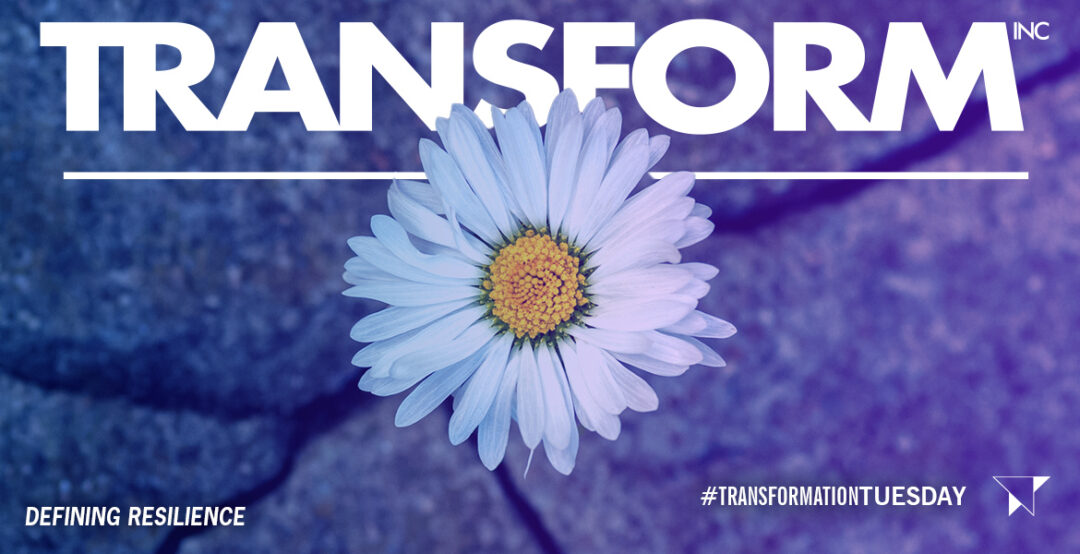Change is all around us—at work, in our relationships, and throughout our lives. We constantly face new challenges and transitions. Lately, I’ve been thinking about a key skill that helps us navigate these changes: resilience. I’ve been reflecting on how resilience is developed, nurtured, and accessed—especially in situations where we have little control over the circumstances or the people involved. Is resilience something we’re born with, or is it a skill we can learn and strengthen over time? Let’s start with defining resilience.
What is resilience? What does it mean to be resilient? In The Resiliency Advantage: Master Change, Thrive Under Pressure, and Bounce Back from Setbacks, Al Siebert, PhD,¹ defines it as that ability to:
- cope well with high levels of ongoing disruptive change;
- sustain good health and energy when under constant pressure;
- bounce back easily from setbacks;
- overcome adversities;
- change to a new way of working and living when an old way is no longer possible; and
- do all this without acting in dysfunctional or harmful ways.
If we were to use these descriptions to create a Resiliency Quiz, how would you fare? Let’s try it, but before you answer the statements below, think about a situation that requires you to be resilient. Now take the quiz.
True | False I cope well with high levels of ongoing disruptive change.
True | False I sustain good health and energy when under constant pressure.
True | False I bounce back easily from setbacks.
True | False I overcome adversities in my life.
True | False I change to a new way of working and living when an old way is no longer possible.
True | False I do all of the above without acting in dysfunctional or harmful ways.
The first two are the ones that I need to work to improve. Most times, on the outside, I look like I am coping well and taking care of myself, but, if I am honest, my inner experience is far from calm and peaceful, and my Type 9 habit of self-forgetting gets activated. After years of working with the Enneagram, I do notice more quickly when my anxiety rises, when I am avoiding conflict, or when I am stubborn and unwilling to make the changes being requested or necessary. I have learned that the first step for me is to check in with myself often so I can stay on top of the thoughts, feelings and behaviors that are supporting me or not. Additionally, I have to continually work on giving myself time to recharge and do the things I know help me stay healthy and active, thus able to handle change with greater resilience.
Can we learn to be more resilient?
So, I do believe we can learn to become more resilient, yet like every other skill we want to learn, it takes intention, attention, and consistent practice. Intention refers to what you want to gain by developing greater resilience (your “why”)—perhaps it’s inner steadiness, the ability to navigate change with less stress, or the strength to bounce back faster after setbacks. Attention means being present to your inner experience, noticing your thoughts, emotions, and patterns without judgment. And consistent practice is the commitment to applying tools—like self-observation, reflection, healthy coping strategies, and supportive habits—over time to move toward realizing your intention. Resilience isn’t built overnight; it’s cultivated through daily choices and a willingness to grow, even in discomfort.
If we can’t control a situation, an outcome or a person, can being resilient really help?
Absolutely! Resilience doesn’t give us control over external events—it gives us control over how we respond to them. It allows us to stay grounded in uncertainty, to bend without breaking, and to recover with wisdom and strength. When we’re resilient, we can face difficulties without being consumed by them. We remain connected to our values, maintain perspective, and make choices that align with who we want to be—even when the road ahead is unclear. In that way, resilience becomes our inner anchor—steadying us not because everything is certain, but because we are growing stronger in how we meet the unknown.
Do you want to be more resilient?
If you do, review your responses to the above quiz, select one or two of the items you want to work to improve, and set your intention. What will it mean for you to be steady in the midst of uncertainty and the unknown? Next, how will you increase your attention to noticing your reactivity—your thoughts, emotions, and behaviors—when things don’t go as planned? Lastly, develop—and be committed to—supportive practices that help you successfully navigate the moments when resilience is needed.
Let us know how it goes … I’ll be working on this alongside you!
Theresa Gale
Principal
1 The Resiliency Advantage: Master Change, Thrive Under Pressure, and Bounce Back from Setbacks, by Al Siebert, PhD.




